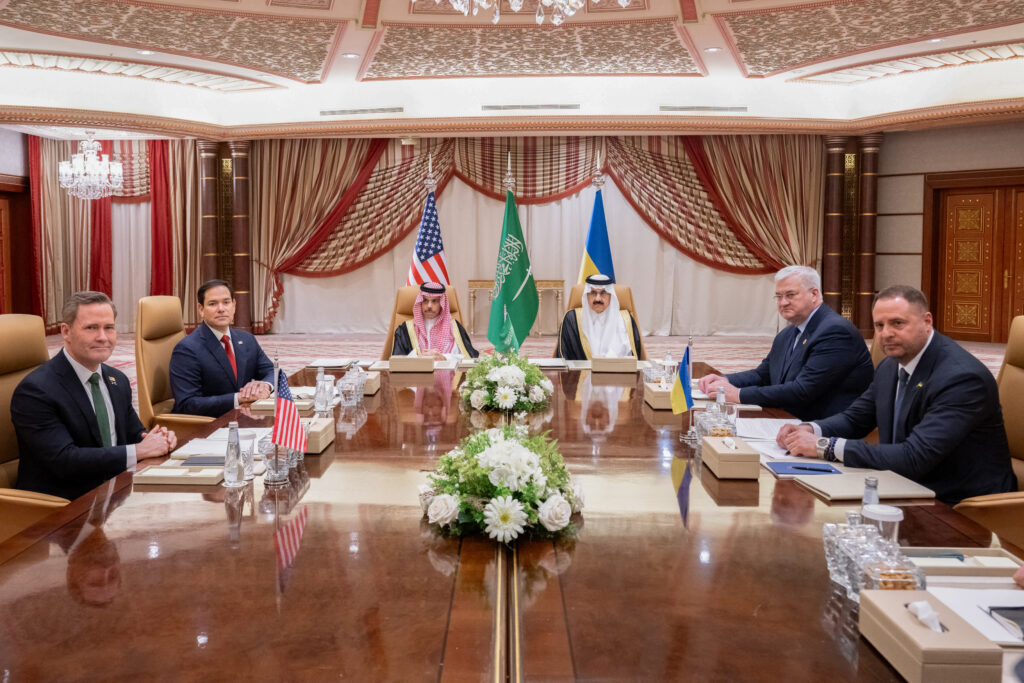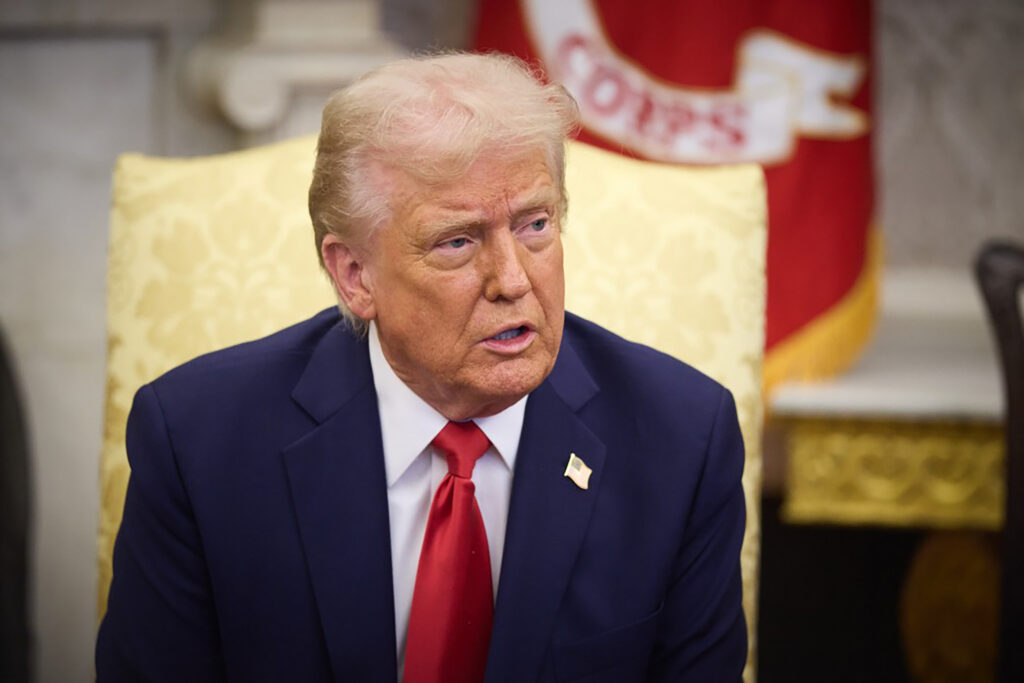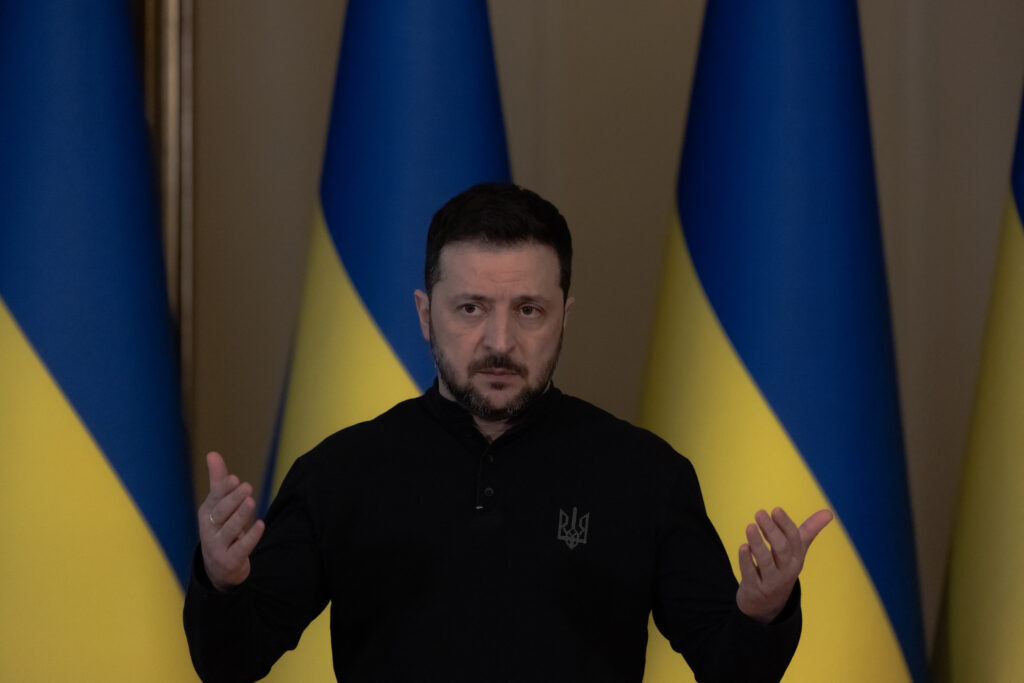Brussels – In the aftermath of the talks in Saudi Arabia between Kyiv and Washington, the world remains bated, waiting for a response from Russia. Vladimir Putin has not spoken out for now, although Donald Trump says he is optimistic. A U.S. delegation is expected to reach Moscow in the coming hours to present the Kremlin chief with the truce proposal worked out in Jeddah. But in reality, it’s not in the Federation’s interest to interrupt the fighting.
The agreement between the Ukrainian and U.S. delegations on a 30-day truce, reached late last night (March 11) in Jeddah, on the Saudi shore of the Red Sea, was an important turning point in the complex political game to reach an end to the conflict that has been raging for more than three years in the former Soviet republic. One could say that the real ceasefire was between Kyiv and Washington after weeks in which tensions had skyrocketed. And, indeed, the agreement on critical Ukrainian raw materials is expected to be concluded “as soon as possible,” and U.S. arms transfers through Poland resumed this morning.

This time, Donald Trump‘s umpteenth forward flight has put Vladimir Putin, and no longer Volodymyr Zelensky, in front of a fait accompli. According to several observers, the U.S. president took a good deal of risk calling the bluff of the Russian counterpart, which would now be left out in the open. “The ball is in Russia’s court,” Marco Rubio, the head of star-studded diplomacy, repeated on several occasions between yesterday and today.
“If they tell us no, that will tell us a lot about what their goals and mindset are,” Rubio said in the afternoon, adding that some kind of deterrent to shelter Ukraine from future aggression “will have to be part of the conversation” and that in that conversation there will “probably” also be a role for European chancelleries.
Talking to reporters from the White House a little later, the New York tycoon was optimistic, claiming that he had received “positive signals” from his Russian counterpart. “We hope we can achieve a ceasefire,” he said, announcing that a U.S. delegation is now travelling to Moscow. Although not directly mentioned, it is likely that the contact team also includes Steve Witkoff, Trump’s special envoy for the Middle East, the architect of the ceasefire between Israel and Hamas, and the likely architect of that between Russia and Ukraine.

But for the moment, almost no one from the Federation is talking. Sources close to the Kremlin leak that the Russian president finds it “difficult to accept” the ceasefire in its current form. According to Putin’s spokesman, Dmitri Peskov, Russia is “studying carefully” the proposal worked out in Jeddah. There will be no official comment before U.S. officials have briefed their Russian counterparts. Also this morning, Russian Foreign Minister Sergei Lavrov reiterated Moscow’s opposition to the presence of NATO troops in Ukraine.
The truth is that it is not in Russia’s interest to stop the fighting at this stage. On the ground it is reaping the benefits of a rapid advance into the oblast’ of Kursk, where the Ukrainians had penetrated last August. In contrast, Kyiv’s armed forces would have everything to gain from a pause in hostilities after months of failing to regain the initiative.
For his part, Zelensky said he hoped for “strong steps” by his Western allies against Russia in case Moscow rejects the ceasefire proposal. The Ukrainian leader praised the “very positive results” achieved during talks with the United States and reiterated that Kyiv “always wanted the war to end,” promising its support for the plan put on the table in Jeddah. Now Washington, he says, will have to coordinate with the Europeans to “force Russia to end” the conflict.

He also added that, during the 30-day truce, the issue of security guarantees for Ukraine will have to be addressed. Regarding any territorial cessions, he reiterated that “we will not recognize any Russian-occupied territory,” arguing that this is the “most important red line” for Kyiv. Zelensky’s hope is evidently still to regain the de facto territories occupied by the enemy through diplomatic means, a goal for which he cannot consent to their recognition de jure as part of the Federation.
English version by the Translation Service of Withub






